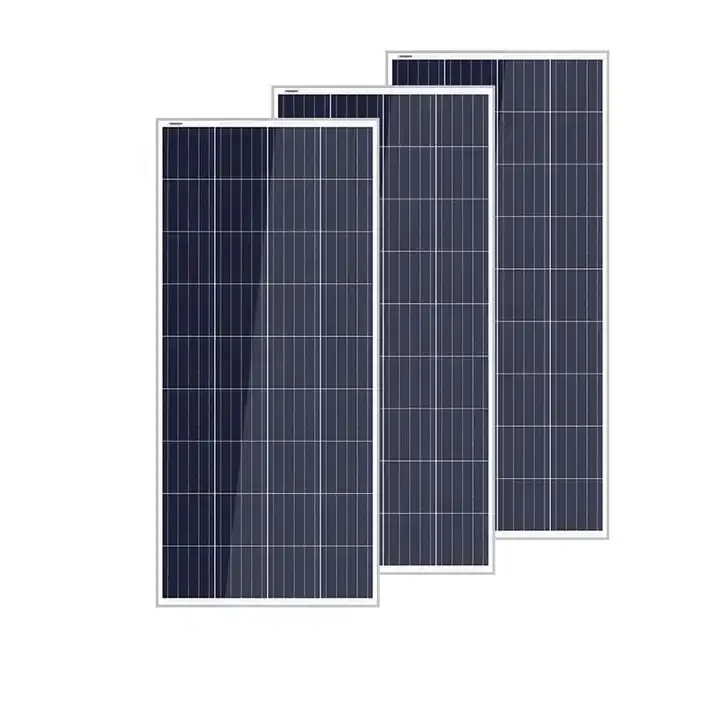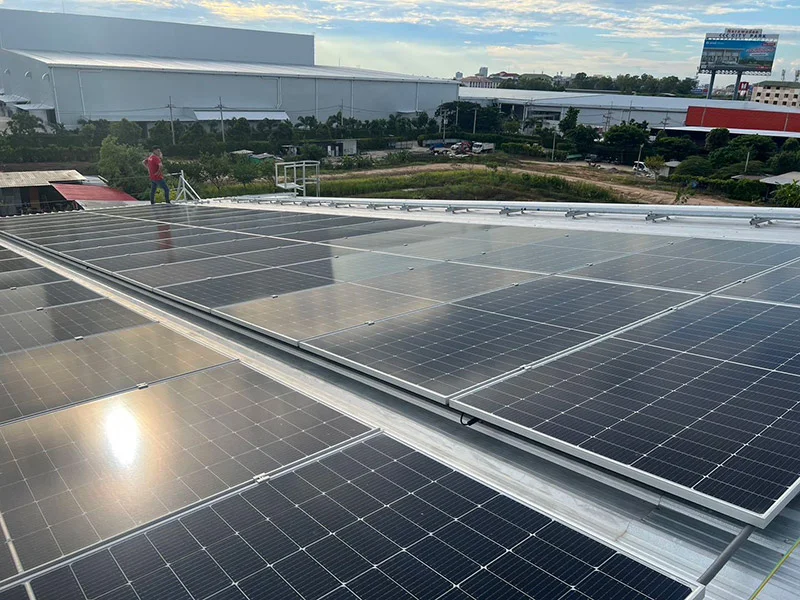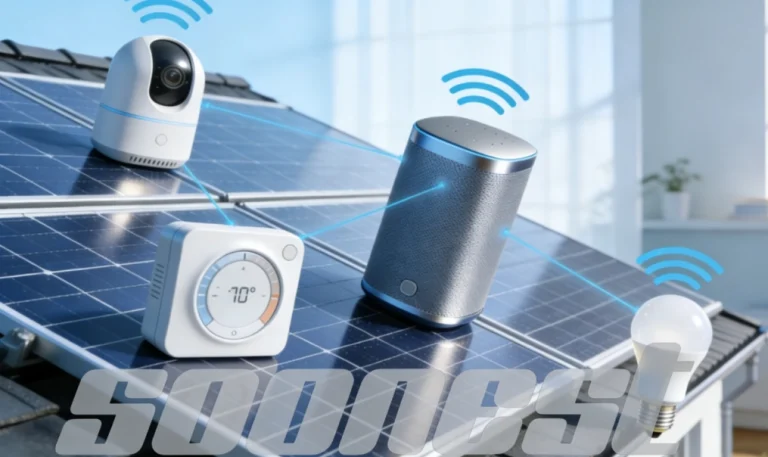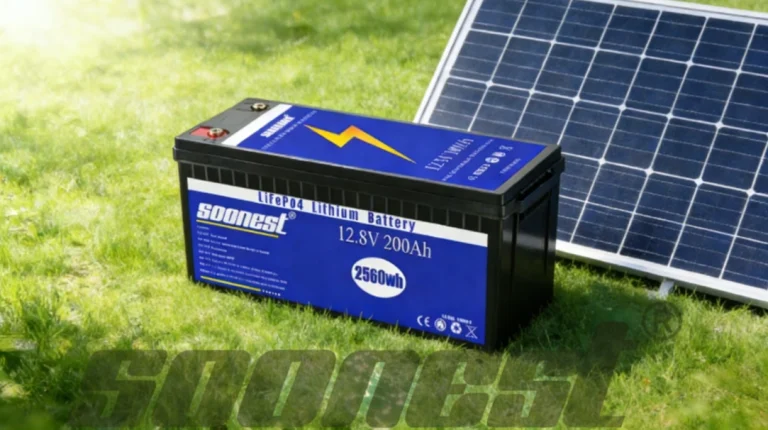بتوفر بطاريات الليثيوم للألواح الشمسية طاقة قوية للجسور اللاسلكية في الهواء الطلق في أماكن خارجة عن الشبكة. تخزن أطنان من الطاقة والأعمار الأخيرة (أكثر من 6000 دورة عند 80٪ من وزارة الدفاع). بالإضافة إلى ذلك ، يتم شحنها بسرعة حتى عندما يتغير ضوء الشمس. صممت لمواجهة الطقس القاسي ، إنها تبقي الأجهزة تتذمر. بالتعاون مع وحدات التحكم MPPT و BMS ، تعزز توفير الطاقة والسلامة ، وخفض التكاليف على المدى الطويل. أخضر وقابل لإعادة التدوير ، فهي تتفوق على بطاريات الرصاص الحمضية القديمة. يعزز معدات Soonest وظائف كبيرة مثل واي فاي الريفي. ستجعل الأشياء الجديدة، مثل بطاريات الحالة الصلبة وتتبع إنترنت الأشياء، الأمور أفضل.

ما الذي يجعل إمدادات الطاقة الموثوقة مهمة للجسور اللاسلكية في الهواء الطلق؟
مصدر طاقة ثابت مهم جدا للجسور اللاسلكية في الهواء الطلق تعمل على الألواح الشمسية. غالبا ما تقوم هذه الأنظمة بمهام حاسمة، مثل ربط القرى البعيدة، أو مراقبة المناطق النائية، أو إدارة عمليات المصانع. إذا انقطعت الطاقة، يمكن أن تتوقف الاتصالات، أو تضيع البيانات. في الأماكن خارج الشبكة حيث الكهرباء غير موثوقة أو حتى هناك ، تحتاج إلى حل تخزين طاقة قوي. يجب أن تتعامل مع الصعودات والهبوطات في الطاقة الشمسية والحفاظ على استقرار الجهد. هذا هو المكان الذي تلمع فيه بطاريات الليثيوم للألواح الشمسية. موثوقيتها ومتانتها تجعلها العمود الفقري لأي إعداد جسر لاسلكي صعب.
لماذا نشر الطاقة الشمسية خارج الشبكة صعب جداً؟
تواجه الأنظمة خارج الشبكة مشاكل كبيرة مع الطاقة التي ليست ثابتة. الطاقة الشمسية تغيرات بسبب الطقس أو وقت النهار أو المواسم. بدون شبكة كنسخ احتياطي، يعتمد الإعداد الخاص بك فقط على الطاقة المخزنة خلال ساعات الشمس المنخفضة.
الظروف الخارجية الصعبة تضيف المزيد من الصداع. الطقس الساخن أو البارد ، بالإضافة إلى الغبار ، يمكن أن يفسد أداء البطارية ويقصر عمرها. تحتاج إلى تخزين مصمم لهذه البيئات الصعبة. ومن المتوقع أن تزداد انقطاعات الكهرباء ومشاكل الشبكة في المستقبل. هذا يجعل من المهم جدا بناء أنظمة خارج الشبكة يمكنك الاعتماد عليها.
ما هي المزايا التي تقدمها بطاريات الليثيوم في التطبيقات الشمسية؟
كيف تحسن كثافة الطاقة العالية كفاءة الفضاء؟
بطاريات الليثيوم للألواح الشمسية حزمة طاقة أكبر في مساحة أقل من تلك الرصاص الحمض القديمة. إنهم يجمعون مجموعة من الطاقة في حزمة صغيرة وخفيفة. هذا أمر رائع للجسور اللاسلكية المنشأة على الأعمدة أو الأسطح ، حيث يكون المساحة ضيقة.
لماذا عمق التفريغ مهم لطول العمر؟
يعرض عمق التفريغ (DoD) كم من طاقة البطارية يمكنك استخدامها بأمان. بطاريات الليثيوم تستمر لفترة طويلة جدا، مع أكثر من 6000 دورة عند 80٪ وزارة الدفاع. يمكنك استخدام معظم الطاقة المخزنة كل يوم دون إضرار البطارية. هذا ممتاز للأنظمة التي تعمل 24/7.
هل يمكن لبطاريات الليثيوم التعامل مع ظروف الشحن المتقطعة؟
تراهن أنهم يستطيعون بطاريات الليثيوم للألواح الشمسية تتشحن وتطلق الطاقة بسرعة. وهذا أمر أساسي عندما تكون الطاقة الشمسية غير مستقرة. فهي تمتص الطاقة بسرعة خلال الأوقات المشمسة، والتأكد من أن لديك ما يكفي من العصير للأيام الغامضة أو الليالي.
كيف تعمل في ظروف بيئية قاسية؟
بطاريات فوسفات الحديد الليثيوم تتعامل مع الطقس القاسي مثل الأبطال. توفر طاقة ثابتة لأشياء مثل الأضواء أو الأدوات، حتى في المناخات القاسية. هذا يجعلها مثالية للإعدادات في الهواء الطلق التي تواجه الحرارة أو البرد أو الغبار.
كيف يتم دمج بطاريات الليثيوم في أنظمة الجسور اللاسلكية في الهواء الطلق؟
كيف تبدو بنية النظام؟
يبدأ الإعداد النموذجي مع مجموعة من الألواح الشمسية. إنه يغذي الطاقة إلى وحدة تحكم الشحن MPPT. هذه الأداة تدير الطاقة المتدفقة إلى بنك بطارية الليثيوم. ثم ، تعمل البطارية على الجسر اللاسلكي من خلال محول DC-DC أو محول ، اعتمادا على الجهد المطلوب.
للعثور على الألواح الشمسية الجيدة لهذه الإعدادات ، تحقق من مجموعة الألواح الشمسية هذه.
كيف تحدد متطلبات الحمل وحجم البطارية؟
أولاً، حدد مقدار الطاقة التي يستخدمها جسرك اللاسلكي في يوم واحد. ثم اختر بطارية يمكن أن تتعامل مع يوم واحد على الأقل من الاستخدام عند 80٪ وزارة الدفاع. على سبيل المثال، إذا كان نظامك يحتاج إلى 50 واط في الساعة، فستريد بطارية 1.2 كيلوواط في الساعة للحفاظ على تشغيل الأمور بسلاسة.
هل هذه الأنظمة متوافقة مع وحدات تحكم الشحن MPPT؟
نعم، إنها مباراة رائعة. بطاريات الليثيوم للألواح الشمسية تعمل بشكل جيد جدا مع وحدات التحكم MPPT. هذه تعديل الشحن بناء على مستويات ضوء الشمس. هذا المزيج يحصل على المزيد من الطاقة ويحافظ على البطارية آمنة من الشحن الزائد أو الشحن المنخفض.
كيف بطارية ذكية هل تعزز الإدارة كفاءة النظام؟
ما هي الحماية التي تقدمها BMS ضد الإخفاقات التشغيلية؟
يوقف نظام إدارة البطارية (BMS) مشاكل مثل الشحن الزائد أو التفريغ الزائد أو التسخين الزائد أو الدوائر القصيرة. هناك الكثير من الحيل الأمنية للحفاظ على الأمور آمنة، حتى في الأماكن النائية التي لا أحد قريب منها.
هل يمكن لـ BMS المساعدة في الصيانة التنبؤية؟
تماماً. تتيح لك وحدات BMS الحديثة التحقق من صحة البطارية في الوقت الحقيقي باستخدام Bluetooth أو اتصالات أخرى. نظام BMS المدمج يراقب الأشياء ويوقف البطارية من الذهاب بعيدًا جدًا. يحذرك من المشاكل قبل أن تتحول إلى مشاكل كبيرة.
ما هي الفوائد البيئية والاقتصادية لتخزين الليثيوم؟
كيف تقلل التكاليف على المدى الطويل؟
تكلفة بطاريات الليثيوم للألواح الشمسية أكثر مقدماً ولكن توفر النقود مع مرور الوقت. تحتاج إلى صيانة أقل وتستمر بنسبة 50٪ أطول من الأنواع الأخرى. أقل استبدالات يعني تكلفة أقل ، خاصة في الأماكن البعيدة حيث تكون الإصلاحات مكلفة.
لماذا هو أكثر صديقة للبيئة من بدائل حمض الرصاص؟
بطاريات الليثيوم أفضل للكوكب عندما يتم صنعها وإعادة تدويرها. لا تسرب المواد الكيميائية السيئة مثل بطاريات الرصاص الحمضية. بالإضافة إلى ذلك ، يمكن إعادة تدويرها بالطريقة الصحيحة ، مما يجعلها خيارًا أخضرًا للمشاريع الصديقة للبيئة.
كيف يمكنك تحسين أداء النشر في سيناريوهات حقيقية؟
ما الذي يجب مراعاته أثناء تقييم الموقع؟
قبل الإعداد ، تحقق من كم من الشمس يحصل الموقع على مدار السنة. استخدم أدوات مثل مخططات مسار الشمس أو مقاييس الحرارة. أيضا، فكر في وضع. الألواح المظللة تنتج طاقة أقل. يمكن لإعدادات التهوية السيئة أن تسخن بشكل مفرط ، مما يضر بكيفية عمل الأشياء.
يمكنك العثور على رائع خيارات الألواح الشمسية هنا لهذه المشاريع.

كيف توازن استخدام الطاقة مع وقت تشغيل الاتصالات؟
قم بتعيين نظامك بحيث لا يستخدم أكبر استهلاك للطاقة أكثر من ما يتم تخزينه خلال الساعات غير المشمسة. اختر معدات الشبكات منخفضة الطاقة عندما يمكنك. أيضًا، جرب أوضاع النوم خلال الأوقات الهادئة لتوفير الطاقة دون فقدان الاتصال.
أين تتجه هذه التكنولوجيا بعد ذلك؟
هل ستصبح بطاريات الليثيوم الصلبة السائدة قريباً؟
هم فقط قد. بطاريات الليثيوم الصلبة تحتوي على طاقة أكبر في حجم أصغر. إنها أكثر أماناً، باستخدام المواد الصلبة بدلاً من السوائل القابلة للاشتعال. هذا يجعلها مثالية لإعدادات صغيرة تحتاج الكثير من الطاقة.
هل يمكن لدمج إنترنت الأشياء أن يحدث ثورة في مراقبة الطاقة؟
يمكن لأنظمة إنترنت الأشياء أن تغير تمامًا طريقة تتبع الطاقة. إنها تراقب الجهد ودورات الشحن ودرجات الحرارة من بعيد. وتذهب هذه البيانات إلى أنظمة السحابة التي تلتقط المشاكل في وقت مبكر وتعدل الأداء بناءً على كيفية استخدام النظام.
أسئلة متكررة
س: هل يمكنني استخدام بطاريات الليثيوم مع الإعداد الشمسي الحالي؟
نعم، إذا دعمت وحدة التحكم في الشحن أنواع الليثيوم (مثل LiFePO4) ، فستعمل بشكل رائع مع معظم الأنظمة الحديثة.
س: كم من الوقت ستستمر بطارية الليثيوم في جسر لاسلكي في الهواء الطلق؟
مع الحجم الصحيح ورعاية BMS، توقع أكثر من 6000 دورة عند 80٪ وزارة الدفاع. هذه سنوات من الاستخدام الصلب.
س: هل هذه الأنظمة قابلة للتوسع إذا كنت بحاجة إلى المزيد من الطاقة في وقت لاحق؟
نعم، العديد من حزم بطاريات الليثيوم تسمح لك بإضافة المزيد من الوحدات. يمكنك زيادة القدرة مع نمو احتياجات الطاقة الخاصة بك.







